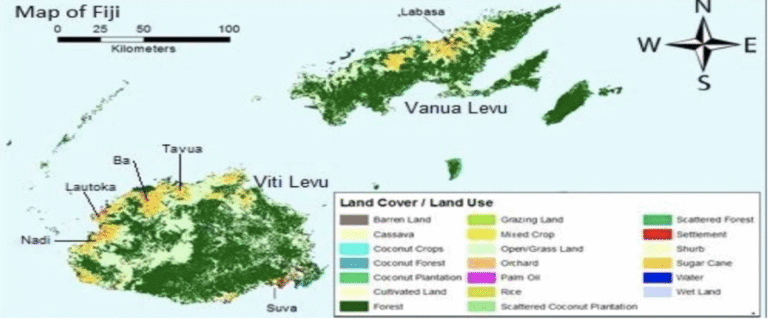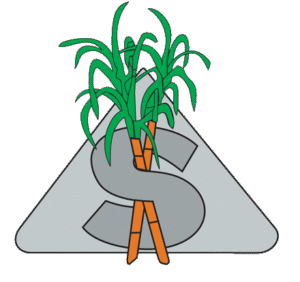Developed by the Sugar Cane Growers Fund.
What is the innovation?
The SCGF Board approves Green Cane Incentive grower indebted to SCGF, harvests 75% Green Cane of the total cane produced and gets a 1 percent per annum interest rate reduction for 12 months, January to December of each year and this program is subject to review annually on receipt of the Burnt/Green Cane data from Fiji Sugar Corporation Ltd.
Purpose and Context of this initiative is that it would demonstrate the commitment and willingness of SCGF to assist in quality cane production, support the industry’s aspiration to reduce burnt cane, support the National; Green Financing Initiative, Sustainable Development Goals, and other Sustainable Programs relating to climate change – mitigation or adaptation
With rapid data collection and real-time mapping, we can respond proactively to rising sea levels, extreme weather events, and shifting environmental conditions, ensuring sustainable development tailored to the unique challenges of the Pacific region.
How does this innovation resolve Pacific-related challenges?
As per Fiji National Climate Finance Strategy 2022-2029 and as cited in Fiji’s Third National Communication, Fiji emits nearly 2.5 million tons per year or around 0.006 percent of world emissions (based on 2006-2011 data). The energy sector accounted for 59% of Fiji’s emissions. Within the energy sector. The agriculture sector (22% of all emissions), forestry sector (15% of all emissions), and waste sectors (4% of all emissions). The Stakeholders identified the top five priority interventions in the sector to be: 1. Embrace climate-smart agriculture, 2. Implement disaster risk financing for agriculture, 3. Promote sustainable agricultural methods, 4. Provide support for sustainable agribusiness and e-commerce on the outer islands and in rural areas, and to commercial and subsistence farmers, while the Ministry of Sugar promotes a sustainable sugar industry and provides income for the people engaged in the sugar industry-
The impacts are devastating and as per Sugar Research Institute of Fiji, the buring of cane contributes to number of respiratory diseases, High amount of toxic gas are released into nearby communities each time a cane farm is burnt. As per Former CEO of SRIF (Prof: Santiago Mahimaraja) more than 90 per cent carbon was found to be present in sugar cane trash is emitted as carbon dioxide which is a major greenhouse gas.
We as a Government corporate organization have brought this incentive as the industry faces challenges of burnt cane which directly or indirectly affects the industry. Some of the causes are deliberate (which could be by the farmers, or cane cutters) and some are cases of arson. The total production, burnt cane in the past years has been 44 to 56 percent ( Data: Provided by FSC and shall not be disclosed due to confidentiality)
Innovation case studies
The implementation has been well accepted by the cane growing community and this has taken place within the cane community of Fiji and the Map is provided below.

How can it be replicated and upscaled in other PICTs?
Climate financing is an approach to mitigate and reduce climate impacts, but it has to a have high level of efficacy backed by policies and government legal framework. The impact of the climate change is real, and it has started affecting the people’s livelihoods. Pacific Island nations including Fiji have undergone climate impacts
We at SCGF brought this initiative is a supplementary or a directive initiative for Climate Financing that can be a paradigm for many pacific Island Institute to adapt. We understand that there are Lending institute associated with agriculture and non agriculture which can adopt such initiative.
What are the next steps for this innovation?
According to research by Jyoti and Singh (2020), climate change has been a severe problem in the 21st century. The impacts range from droughts, floods, and cyclones. The impact of climate change comes from the temperature change. Sugar cane crop depends on weather pattern and its highly sensitive to the effects of climate change. An increase in temperature causes ingrowth in weeds and a decrease in temperature. Rainfall and low temperature affect the plant’s growth and cane’s juice quality. Overall the yield of sugar cane will be impacted by climate change.
The current challenges are that there are frequent flooding and salt water intrusion in crops. The impacts are a threat to the livlyhood of the cane farmers with income and food security being impacted . Therefore there is need for climate funding and further research on vulnerable areas.

